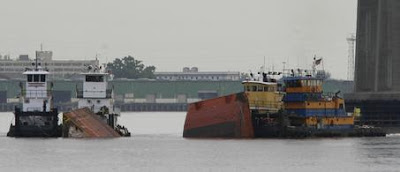
FIREWOOD
"Mainers who buy firewood are paying more as they stock up this summer and many are finding short supplies, as well.
Pete Lammert of the Maine Forest Service warns that most firewood dealers are hustling just to fill orders from regular customers. He says customers who used to buy one cord are buying two, and those who used to buy two are buying four.
High oil prices are driving the push to heating alternatives including firewood and wood pellets. Prices are topping $200 a cord."
LINKNATURAL GAS
"I'm afraid we're headed for another catastrophic year, in terms of natural gas prices," he said.
Natural gas futures have risen 97 percent in the past year, following crude oil prices. For residential gas customers, "That is going to hit home in December and January," Popowsky said."
LINKHOME HEATING OIL
"New Englanders struggling this summer to pay gas prices topping $4 a gallon should brace for more bad news — home heating oil costs next winter are expected to hit record highs.
One retail heating oil dealer says she expects a typical household delivery that cost $500 last winter will climb to at least $850 this winter.
"It's going to be staggering," said Northboro Oil Co. owner Sandra Farrell in telephone interview with The Associated Press. "It's going to be a real problem going into this winter for everyone unless something changes."
Farrell, whose family has owned and operated the Northborough, Mass., business since 1953, said some dealers are talking about prices in the $4.89 per gallon range for the coming winter, about $2 more per gallon than last winter. An average household usually needs four deliveries from December to March, she said."
LINKELECTRIC HEAT"Residential customers of Public Service of New Hampshire will see electric rates go up 5.7 percent, due to the skyrocketing prices for energy resources." LINK
SHRUB
And how is our President addressing this???
"State Sen. Marc Pacheco, a Democrat of Taunton, says "it's really impacting working families dramatically. We're facing a crisis situation."
Pacheco criticizes the Bush administration for proposing a 22% cut in federal home heating assistance this winter.
"We shouldn't be cutting energy assistance for the needy and for the working poor at a time when home heating oil costs are skyrocketing like they've never done before," says Pacheco."
LINK
 "A strong earthquake with a preliminary magnitude of 5.4 shook large parts of Southern California, shaking a wide swath from Ventura County to San Diego.The quake shook downtown L.A. buildings and was felt as far east as Palm Springs." LINK
"A strong earthquake with a preliminary magnitude of 5.4 shook large parts of Southern California, shaking a wide swath from Ventura County to San Diego.The quake shook downtown L.A. buildings and was felt as far east as Palm Springs." LINK "A strong earthquake with a preliminary magnitude of 5.4 shook large parts of Southern California, shaking a wide swath from Ventura County to San Diego.The quake shook downtown L.A. buildings and was felt as far east as Palm Springs." LINK
"A strong earthquake with a preliminary magnitude of 5.4 shook large parts of Southern California, shaking a wide swath from Ventura County to San Diego.The quake shook downtown L.A. buildings and was felt as far east as Palm Springs." LINK
 WATERSPOUT ON BARRINGTON BEACH (ABC 6 Viewer Christopher Legro)
WATERSPOUT ON BARRINGTON BEACH (ABC 6 Viewer Christopher Legro)























